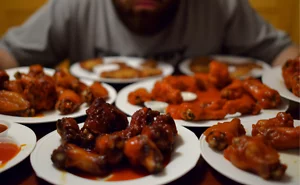The terrain of inter partes review (IPR) strategy shifted meaningfully on November 17, 2025. On that date, the USPTO issued a memorandum authorizing voluntary Search Disclosure Declarations (SDDs), positioning them as a pro‑institution factor in IPR and PGR practice. At first glance, the SDD looks like a one‑way ratchet in petitioners’ favor: disclose your search methodology, strengthen your story of Office error, and improve your institutional odds. But once Ironburg Inventions Ltd. v. Valve Corp. is layered on top of the new guidance, the calculus becomes more ... Read More ›
In an Inter Partes Review (IPR), Petitioners have long been told to avoid relying on prior art the examiner already “considered,” for fear of triggering a discretionary denial under 35 U.S.C. § 325(d). Early PTAB decisions like Becton, Dickinson & Co. v. B. Braun Melsungen AG, IPR2017-01586, Paper 8 (P.T.A.B. Dec. 15, 2017) (precedential as to § III.C.5, first paragraph), and Advanced Bionics, LLC v. MED-EL Elektromedizinische Geräte GmbH, IPR2019-01469, Paper 6 (P.T.A.B. Feb. 13, 2020) (precedential), reinforced that message.
Similarly, PUMA North America, Inc. v. NIKE ... Read More ›
The Patent Eligibility Restoration Act of 2025 (PERA 2025) is a proposed amendment to 35 U.S.C. § 101 that establishes clearly defined statutory exceptions to patent eligibility and eliminates all judicial exceptions. Support for PERA 2025 has been somewhat mixed: companies facing infringement lawsuits oppose its expansion of patentable subject matter, while firms in the life sciences sector, particularly in diagnostics and biotechnology, have tended to support it.
Section 101 Patent Subject Eligibility Unpredictability
Any discussion of PERA 2025 must begin with 35 U.S.C ... Read More ›
The United States Patent and Trademark Office (USPTO), led by Director John A. Squires, has issued a notice of proposed rulemaking to revise the rules governing inter partes review (IPR) before the Patent Trial and Appeal Board (PTAB). The proposed amendment would expand 37 C.F.R. § 42.108 by adding new subsections (d) through (g) to clarify when the Office may decline to institute an IPR, even when a petition otherwise meets statutory thresholds.
The proposed changes would narrow those IPR proceedings that are instituted. The Director aims to prevent IPRs from duplicating ... Read More ›
As always, the intellectual property (IP) landscape is changing and IP strategy is evolving with it.
For years, patents were often considered the primary tool for protecting a company’s innovations. Patents offer relatively straightforward legal rights, with a defined path to enforceability and corresponding deterrent value. On the non-legal side, they also provide significant business advantages.
From a purely business perspective, patents offer significant practical benefits. They offer a clear legal path to acquisition enforceability with corresponding deterrent ... Read More ›
Artificial Intelligence (AI) tools, especially large language models, are transforming many aspects of legal work, including contract drafting. They can generate polished-looking text in seconds and even assist in assembling certain legal documents. But when it comes to complex, highly technical, or high-stakes contracts, particularly those involving intellectual property (IP), relying solely on AI is not just risky, it can have sweeping legal and financial consequences.
Here’s why skilled attorney review remains essential:
IP and Patent Agreements Involve ... Read More ›
A client of ours received a suspicious letter just one week after filing a USPTO trademark application. The sender listing an address in Bluffton–Hilton Head, South Carolina offered a “publication” of the trademark for $1,450. In reality, you do not need to pay any third party to “publish” your mark, and paying won’t speed anything up. The value of that so-called “publication” is $0—it provides no legal rights, no procedural benefit at the USPTO, and no impact on your application.
Fraudulent or misleading solicitations are a longstanding issue for trademark ... Read More ›
The U.S. Patent and Trademark Office's (USPTO) Prioritized Patent Examination Program, known as the Track-1 Program, provides an accelerated patent application examination in exchange for additional filing fees to those required for regular filings. But how does an applicant determine whether and when to use the Track-1 Program for a patent application? The answer may relate to an applicant’s business needs, as well as whether Track-1 limit has been exhausted for a particular year.
A regular patent application averages two (2) to four (4) years from the time of filing to ... Read More ›
What’s in a name? For Philadelphians (and young men of a particular era) “Wing Bowl” conjures up zany images from the 1993-2018 annual early morning chicken wing eating competition including scantily clad women, radio theatrics and trying to get into a sports arena at the crack of dawn, all wrapped up in a uniquely local brand of Philadelphia pre-Super Bowl sports chaos.
After seven years, Wing Bowl is reportedly back in the news. But when you look a little closer, it’s clear this is not quite the Wing Bowl of old. The event is being licensed, but not revived in the same way. It will ... Read More ›
Like other areas of law, intellectual property (IP) is often depicted as part of a plot point in popular culture, such as movies and television. In addition, lP is often mentioned in the mass media, particularly when any “high-tech” news is of interest. However, unlike some other areas of law, popular culture often gets IP wrong. And in some cases, very wrong.
This article explores how popular culture handles IP, often gets it wrong, and sometimes gets it right.
The “IP Mix-Up”
One of the most common ways that popular culture makes mistakes when discussing IP is by confusing the ... Read More ›
Subscribe
Recent Posts
- Sharpening the Sword, Exposing the Shield: SDD Practice and the Ironburg “Skilled Searcher” Standard
- From Shield to Sword: Using Examiner-Considered Art to Beat § 325(d)
- An Overview of the Patent Eligibility Restoration Act of 2025
- USPTO Proposes New Limits on Inter Partes Review Challenges Under 37 C.F.R. § 42.108
- Choosing Trade Secrets Over Patents? What Recent Cases Mean for Your IP Strategy
- Don’t Let AI Negotiate Your IP Future
- When "Publication" Letters Might be a Trademark Scam
- Working within the USPTO Track 1 Limits
- From Radio Stunt to Licensing Asset: What Wing Bowl Teaches Us About Trademark Value
- Intellectual Property in Popular Culture: When IP Goes “Pop”
Archives
- December 2025
- November 2025
- October 2025
- September 2025
- July 2025
- June 2025
- May 2025
- April 2025
- February 2025
- January 2025
- November 2024
- September 2024
- August 2024
- June 2024
- May 2024
- April 2024
- February 2024
- January 2024
- December 2023
- November 2023
- October 2023
- September 2023
- August 2023
- July 2023
- May 2023
- April 2023
- March 2023
- February 2023
- January 2023
- October 2022
- August 2022
- June 2022
- May 2022
- April 2022
- March 2022
- February 2022
- January 2022
- December 2021
- November 2021
- October 2021
- September 2021
- August 2021
- July 2021
- June 2021
- May 2021
- April 2021
- March 2021
- February 2021
- January 2021
- December 2020
- November 2020
- October 2020
- August 2020
- July 2020
- June 2020
- May 2020
- April 2020
- March 2020
- February 2020
- January 2020
- November 2019
- October 2019
- September 2019
- June 2019
- April 2019
- February 2019
- January 2019
- October 2018
- July 2018
- June 2018
- May 2018
- April 2018
- March 2018
- February 2018
- January 2018
- December 2017
- November 2017
- October 2017
- August 2017
- July 2017
- May 2017
- April 2017
- March 2017
- February 2017
- January 2017















